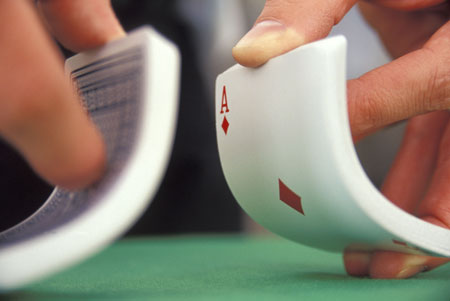
Problem gamblers can feel hopeless and suicidal. There are many resources to help you or a loved one.
March is Problem Gambling Awareness Month, a good time for spouses or friends to have a conversation about the addiction.
According to the National Council on Problem Gambling, “gambling is a problem if it causes problems.”
“A pathological gambler is preoccupied with gambling and thinks about it all day,” said Dan Buss, a clinical social worker at Marshfield Clinic. “Everything revolves around it.”
The average client he sees for compulsive gambling has a debt of about $32,000. Some have “maxed-out” eight credit cards while others have dipped into retirement plans and stock holdings. Beyond the enormous financial costs are the many families destroyed.
Suicidal tendencies
People who put themselves in such dire circumstances can feel hopeless and suicidal. Problem gamblers have a 20 percent higher rate of suicide than non-gamblers.
“These compulsive gamblers can’t control the impulse to gamble, even when they know it is hurting themselves or their loved ones,” Buss said. “They keep going whether they’re up or down, broke or flush, happy or depressed. Even when they know the odds are against them and they can’t afford to lose, people with a gambling addiction can’t stay off the bet.”
A hidden illness
Gambling addiction is sometimes referred to as a “hidden illness” because there are no obvious physical signs or symptoms like there may be with drug or alcohol addiction. Problem gamblers typically deny or minimize the problem and go to great lengths to hide it. They often withdraw from their loved ones, sneak around and lie about where they’ve been.
For those who want help for themselves or a loved one or friend, it’s available from counselors like Buss. Services and resources are also available from the National Council on Problem Gambling, including a 24-hour helpline, 1-800-522-4700, and a state-by-state counselor locator.
Gamblers Anonymous offers group sessions, patterned after the 12-step program of Alcoholics Anonymous, which offers help from others with a gambling addiction. They also have a Wisconsin county-by-county listing.

